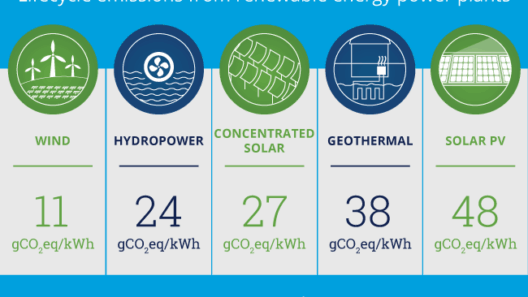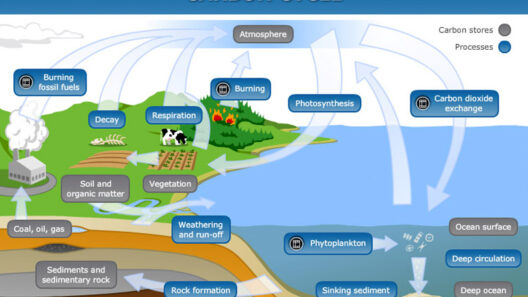The escalating climate crisis has engendered a multifaceted discourse, with increasing scrutiny directed at the symbiotic relationship between global warming and economic enterprises. One resonant question arises within this arena: Are people indeed profiting from the turmoil spurred by global warming panic? This inquiry invites an examination beyond the superficial narrative of altruism and environmental stewardship, revealing an intricate web of interests where concern for the planet intersects with financial ambition.
At the heart of this discussion lies the phenomenon of climate capitalism. This term encapsulates the transformative shifts occurring in various sectors, fueled by the urgency of climate change. Companies are increasingly pivoting towards sustainable practices, rebranding themselves as eco-conscious entities. While some of these initiatives stem from genuine concern for the environment, others appear to be opportunistic maneuvers aimed at capitalizing on evolving consumer sentiments. Firms that promote renewable energy technologies, carbon offsets, and sustainable goods often tout their environmental commitments. However, the question remains whether these actions are genuinely altruistic or primarily economically motivated.
Consider the burgeoning market for carbon credits, which represents a critical area where financial gain intersects with climate consciousness. The carbon credit system allows companies to purchase credits, permitting them to emit a certain amount of carbon dioxide. The allure of this market is evident: as regulatory frameworks tighten, the demand for carbon credits expands. Corporations recognize the opportunity to profit by trading these credits, which can lead to inflated prices and the commodification of environmental responsibility. While it ostensibly supports emissions reduction, the potential for exploitation raises ethical concerns. Are companies genuinely committed to mitigating their carbon footprints, or are they simply navigating a lucrative new landscape?
Moreover, the urgency surrounding climate change has precipitated unprecedented investments in green technologies. The renewable energy sector, particularly solar and wind, has witnessed exponential growth, beckoning investors and startups alike. The irony lies in the fact that while addressing ecological crises, these ventures can often yield remarkable financial returns. Reports indicate that investments in renewable energy have outpaced those in fossil fuels as the world girds itself for a transition to sustainability. This shift presents a dual-edged sword: while it fosters innovation and better environmental outcomes, it also amplifies the risk of exploitation. Are tech giants merely cashing in on the climate crisis, manipulating public concerns to drive profits?
The commodification of eco-friendliness extends into corporations’ marketing strategies, often leveraging global warming panic to enhance brand equity. Appeals to sustainability are now ubiquitous, as businesses integrate eco-friendly narratives into their branding. Products marketed as “green” or “sustainable” command higher price points, enticing consumers who seek to diminish their environmental impact. However, one must consider the authenticity of these claims. Greenwashing—where companies exaggerate or fabricate their environmental commitment—has emerged as a dire challenge in this landscape. When businesses prioritize profit over purpose, the genuineness of their sustainability claims becomes questionable.
Furthermore, media coverage surrounding climate change often sensationalizes its impacts. While raising awareness about the looming environmental crises is crucial, the portrayal of apocalyptic scenarios can drive public hysteria. This sensationalism can inadvertently lead to a lucrative landscape for certain sectors, particularly insurance and disaster relief. Companies that offer climate-related insurance products thrive in a climate of heightened fear. The rise in natural disasters, exacerbated by climate change, has created a market flooded with opportunities for profit. The question raises eyebrows—are some entities thriving on the misfortune forced upon communities by nature?
Activist organizations and NGOs also occupy a pivotal role in this dynamic. They often rely on donations and grant funding to sustain their operations. While many pursue their missions with integrity, a few have been scrutinized for profiting from the same climate panic they aim to combat. Fundraising campaigns can be most compelling when they invoke fear or urgency. Thus, there exists the possibility that a cycle of dependency emerges—where the sustenance of organizations inadvertently hinges on the perpetuation of climate anxiety. This complicity can stifle meaningful dialogue and action, ultimately undermining efforts to effect genuine change.
However, amidst this complex tapestry of profit and panic, it is essential to recognize that not all actors in this sphere operate with ulterior motives. Many businesses and organizations strive to reconcile the human desire for capital with a profound commitment to sustainability. Enterprises innovating in renewable energy, developing sustainable agriculture techniques, or spearheading conservation efforts often emerge with authentic intentions, seeking not just monetary gain but also a lasting impact on the planet’s health. This duality illustrates the profundity of the climate debate—where profit potential can coexist with sustainability endeavors.
In conclusion, the inquiry into whether individuals and corporations are profiting from global warming panic unveils a landscape rife with opportunities and ethical dilemmas. Climate capitalism is reshaping the economic landscape, where financial pursuits can align with environmental advocacy, or conversely, devolve into opportunism. As society grapples with the challenges posed by climate change, fostering transparency and accountability is crucial. Navigating this complex terrain necessitates discernment both from consumers and stakeholders alike. Sustainable progress is undoubtedly possible, yet it must stem from genuine commitment rather than exploitation of fear. The pursuit of a sustainable future must transcend mere profit; it must embody a profound responsibility to the planet and all its inhabitants.








